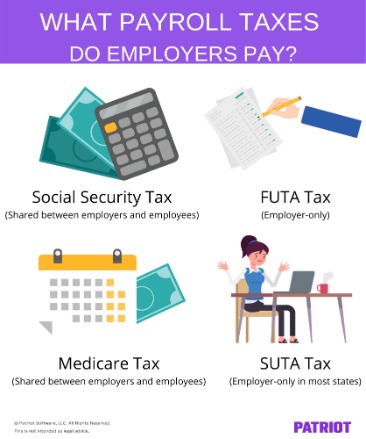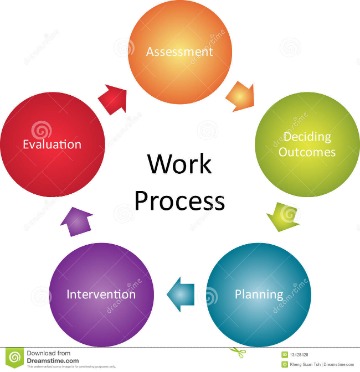Key Differences Between Bookkeeping and Accounting

First, let’s start with an extremely brief and incomplete history of accounting, and then we’ll jump into the main differences between bookkeeping and account. Both bookkeepers and accountants may charge a flat rate or, more commonly, by the hour. Department of Labor’s Occupational Handbook, some of the most in-demand accounting jobs include comptroller, accounting manager, senior tax accountant, and internal auditors. A forensic accountant’s job is to investigate, audit, and prove the accuracy of financial documents and dealings.

If you are interested in becoming an accountant, it may be beneficial to your career to become a certified public accountant (CPA), which has its own exam. You must have a minimum of 150 postsecondary education hours, or what amounts to a bachelor’s degree in accounting, and an additional 30 hours of graduate work. Many business owners decide to hire bookkeeping or accounting help when their business finances have become more complicated to manage alone. Accountants are qualified to create financial statements for both employees and investors. They may also create budgets, help business owners plan ahead, and provide specific tax advice. Unlike accountants, bookkeepers are not required to have a bachelor’s degree.
Chapter 1: Financial Statements
Bookkeepers and accountants share the same long-term goal of helping your business financially thrive, but their roles are distinct. Bookkeepers focus more on daily responsibilities, like recording transactions, while accountants provide overarching financial advice and tax guidance. Bookkeepers don’t need a special certification, but a good bookkeeper is important for an accountant to have accurate financial records. Bookkeepers and accountants are both critical for the financial health of a company. If you’re not tracking daily expenses, you’ll have very little information to give to your accountant and they won’t be able to make informed decisions.
You can use a firm or work with accounting software for your business needs. With clear, organized records of how the money flows into and out of a business — with proper ledgers or well-kept books — the work of accounting can be done. The words “bookkeeping” and “accounting” are used interchangeably, but they refer to two distinct functions. Both exist in the financial arm of the business, and they’re certainly closely tied, but bookkeeping and accounting are not one and the same.
Learn How NetSuite Can Streamline Your Business
For example, KPMG offers employees up to 25 days of paid vacation time, telecommuting opportunities, and a robust health insurance package. Understanding the distinction between accounting and bookkeeping is essential to managing your business finances. Outsourcing accounting can also free up your time to focus on other aspects of running your business! Plus, you’ll receive valuable insights and financial advice from experienced professionals on achieving business growth and stability in the long run. A 2022 survey conducted by QuickBooks found small businesses reported an average of $39k in savings by hiring an accountant or bookkeeper. Meanwhile, an accountant interprets your financial data and monitors for compliance.
They may take some finance-related classes at the college level, but even this is not a requirement. The American Institute of Professional Bookkeepers offers a Certified Bookkeeper designation, which can set professional bookkeepers apart from others. Think of bookkeeping as the first step in the holistic accounting process, preparing your business accounts for more complex tasks. A bookkeeper must catch tiny or hidden mistakes because even small ones can affect your business. Part of the accounting process may include checking the statements prepared by a bookkeeper for errors and adjusting entries as needed.
These steps require a more in-depth understanding of finances, so an accountant will typically perform them. Most importantly, your accountant is a valued advisor who can help you with important decision-making. If you’re considering purchasing new equipment or taking out a line of credit, for example, your accountant can help you determine the financial ramifications your decision can have. Bookkeepers are commonly responsible for recording journal entries and conducting bank reconciliations. A bookkeeper must be able to shift focus easily and catch tiny, hidden mistakes in a budget or invoice. They often bookkeepers work a few jobs for various clients if they work as a consultant.
They make higher salaries than bookkeepers but lower salaries than accountants. In short, bookkeeping is the process of recording financial transactions. While bookkeeping and accounting are both essential business functions, there is an important distinction. Bookkeeping is responsible for the recording of financial transactions. Accounting is responsible for interpreting, classifying, analyzing, reporting and summarizing financial data.
Can I Do My Own Bookkeeping?
Thereafter classifying these transactions by posting them into respective ledger accounts. Once the bookkeeper posts all transactions, the accountant generates a trial balance that lists all business accounts and balances. Accountants will then use the updated trial balance to produce financial statements.
- Accounting is more subjective, providing business owners with financial insights based on information gleaned from their bookkeeping data.
- First, let’s start with an extremely brief and incomplete history of accounting, and then we’ll jump into the main differences between bookkeeping and account.
- However, the latter is the process of measuring and recording all financial transactions of a financial year.
- Accounting software will help you set up accounts and make journalizing entries and posting to the general ledger much easier.
- As an accountant, you must pay attention to figures and financial details, but it is more essential to possess sharp logic skills and big-picture problem-solving abilities.
- In this post, we’ll cover the differences and similarities between accountants and bookkeepers and their services so you know which to hire.
For example, if a bookkeeper does not pay invoices correctly, handle payroll accurately, or verify expenses, then all other accounting tasks may be harder to execute. Understand the distinction to analyze your small business finances more effectively. Lastly, while bookkeepers can adjust to many different types of businesses, accountants tend to specialize. Some accountants only prepare taxes, while others work in health care accounting, auditing, or a specific industry. While accountants may handle some bookkeeping duties, there are a lot of differences between an accountant and a bookkeeper. Some of the major differences include their training and day-to-day work, and each has its pros and cons to consider.
Accounting is the language of business, as the reports it provides are needed by the concerned parties, such as creditors, employees, investors, shareholders, government agencies, tax authorities, etc. Bookkeeping does not depict the operating results of a business, whereas accounting indicates the operating results of a business. Take a peek at some common accounting mistakes that could risk a business, educate yourself on the accounting standards in the countries where you sell, and make sure you’re on top of everything. Bookkeeping is just one part of accounting, and bookkeeping comes first. Some describe it as the foundation of accounting, the necessary groundwork.
The difference between accounting and bookkeeping
Bookkeeping is the collection, sorting and recording of the financial transactions of a business. Beth records all the sales transactions and all the expenses incurred by the interpretation of cash flow to net income ratio restaurant on a daily basis. Accountants dissect financial transactions in budget statements and business reports following accounting principles, measures, and necessities.
UBS will cut 3000 jobs in Switzerland as it absorbs Credit Suisse – WSIL TV
UBS will cut 3000 jobs in Switzerland as it absorbs Credit Suisse.
Posted: Thu, 31 Aug 2023 05:51:32 GMT [source]
Therefore, those who do not like math, get confused easily when making simple calculations, or are generally opposed to number crunching should not apply. CPAs are trained on the latest tax laws and regulations, which can be too complex for a business owner to implement on their own. For a small business, it might make sense to keep an accountant on retainer or just bring them in strategically during the year. For example, some business owners only hire accountants to file their tax returns.
Bookkeeping is the process of recording and storing all of the daily financial transactions that a business, individual, or nonprofit organization completes. This is necessary to gather financial information that can be used by the accountant to fulfill a variety of functions. Taking a few accounting courses and developing a basic understanding of accounting will qualify you for a job in bookkeeping. To work in accounting, you must have at least a bachelor’s degree to become an accountant or, for a higher level of expertise, you can become a certified public accountant. Third, the accountant is significantly more highly trained than the bookkeeper. Fourth, the bookkeeper is largely focused on recording transactions, while the accountant engages in a much broader range of activities.
He’ll look for allowable deductions and design a strategy to reduce the restaurant’s tax obligation within the bounds of the law. This definition may sound very close to what bookkeeping is, and you are right. Bookkeeping involves the recording of financial data taken from businesses’ financial transactions. Accounting begins before bookkeeping starts and continues after it ends. Bookkeepers record financial transactions in subsequent request once a day. Since bookkeeping software mechanizes a significant number of the procedures, a few bookkeepers in little associations also classify and summarize financial data in reports.

Without this information, it would be difficult to make informed decisions about where to allocate resources. Every business and not-for-profit entity needs a reliable bookkeeping system based on established accounting principles. Bookkeeping refers mainly to the record-keeping aspects of accounting; it’s essentially the process of recording all the information regarding the transactions and financial activities of a business. Instead, an accounting firm may hire an in-house bookkeeping team or partner with their client’s bookkeeper to provide business owners with the expertise and financial support they need. Other bookkeepers get certified in the bookkeeping software they use with clients.
Is accounting better than bookkeeping?
Accounting and bookkeeping are 2 vastly different professions despite the similarities and blurring of roles. Hopefully, this post helped clarify these differences and similarities to remove any confusion. However, if you need insight and advice on how to better operate your business at scale…you will need help from an accountant.